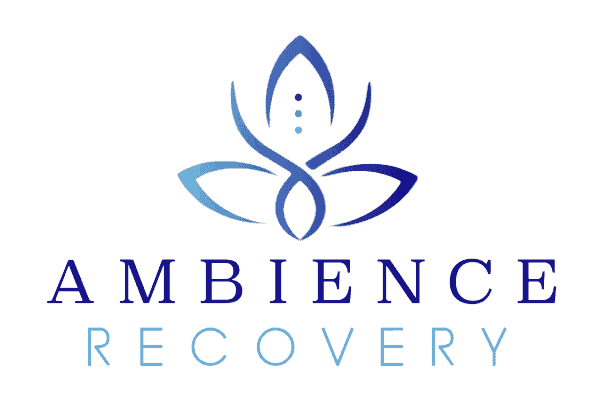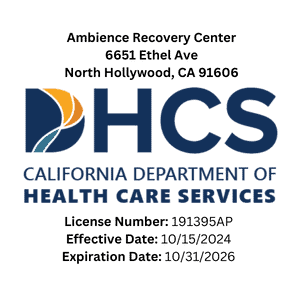Key Takeaways
- Relapse Is Common: Relapse is a normal part of the addiction recovery process and should be seen as a learning opportunity, not a failure.
- Recovery Is a Journey: Addiction recovery is an ongoing process with ups and downs; setbacks are part of the journey, not the end of it.
- Learning from Relapse: Relapse can provide valuable insights into triggers and areas that need more focus in your recovery plan.
- Support Is Essential: After a relapse, seeking help and leaning on your support network is crucial to getting back on track.
Introduction
Addiction recovery is a challenging and ongoing process. Along this journey, relapse is often misunderstood and stigmatized as a sign of failure. However, relapse is a common and natural part of the recovery process, and it doesn’t mean that recovery has failed. Understanding why relapse happens and how to learn from it is essential for anyone on the path to long-term sobriety.
Why Relapse Is a Part of Addiction Recovery
Relapse is often seen as a setback, but it’s essential to recognize that it’s a normal part of the addiction recovery journey. Addiction is a chronic condition, similar to other long-term health issues like diabetes or hypertension, where setbacks can occur. Just as a diabetic may experience a spike in blood sugar levels, someone in recovery may experience a relapse. This doesn’t mean treatment isn’t working; rather, it indicates that adjustments may be needed in the recovery plan.
Relapse can occur for many reasons, including stress, exposure to triggers, or even a sense of overconfidence in one’s ability to handle situations involving substances. What’s crucial to understand is that relapse is not a sign of weakness or failure. It’s an opportunity to reassess, learn, and strengthen your commitment to recovery.
Understanding the Recovery Journey
Addiction recovery is not a straight path; it’s a journey with many twists and turns. Recovery involves growth, self-discovery, and ongoing effort. It’s crucial to view recovery as a process rather than a destination. There will be challenges along the way, and setbacks like relapse are part of that process. These experiences can be used to gain a deeper understanding of yourself and what you need to stay sober.
Seeing recovery as a journey allows you to approach it with patience and compassion. Each step, whether forward or backward, is part of the learning process that ultimately leads to long-term sobriety. The key is to keep moving forward, even when faced with setbacks.
Learning from Relapse
While relapse can feel discouraging, it’s essential to approach it as a learning experience. Relapse provides valuable insights into the triggers, stressors, and situations that may have led to the setback. By analyzing what happened before and during the relapse, you can identify the areas in your recovery plan that need more attention.
For example, if stress at work leads to a relapse, it might be a sign that you need to develop better coping strategies for managing stress. If social situations triggered the relapse, you might need to reassess your social circles or set more precise boundaries. Understanding the cause allows you to adjust your recovery plan better to protect yourself from future setbacks.
Learning from relapse is about taking proactive steps to prevent it from happening again. This might involve increasing your participation in support groups, seeking additional therapy, or making lifestyle changes that support your sobriety.
The Importance of Seeking Support After a Relapse
One of the most important things you can do after a relapse is to reach out for support. It’s crucial not to isolate yourself or hide the relapse out of shame or fear. Instead, lean on your support network—friends, family, a therapist, or a recovery group.
Support systems provide the encouragement and accountability needed to get back on track. They can help you navigate the emotions that come with relapse, such as guilt or frustration, and guide you toward the next steps in your recovery journey.
Professional treatment can also be incredibly beneficial after a relapse. A therapist or counselor can help you analyze what led to the relapse and work with you to adjust your recovery plan. They can also offer new strategies for coping with triggers and stressors, helping you rebuild your confidence and commitment to sobriety.
How Ambience Recovery Can Help
At Ambience Recovery, we understand that relapse is a part of the recovery journey, and we’re here to support you every step of the way. Our comprehensive approach to addiction recovery includes personalized treatment plans, therapy, and support groups designed to help you navigate the challenges of sobriety.
If you’ve experienced a relapse, Ambience Recovery offers the tools and support needed to get back on track. We provide a safe and understanding environment where you can learn from your experience and continue your recovery journey with renewed strength and determination.
Conclusion
Relapse is not a failure; it’s a part of the addiction recovery journey. By understanding this and learning from the experience, you can use relapse as an opportunity to strengthen your recovery plan and continue moving forward. Remember, recovery is a process; setbacks do not define your journey. If you or a loved one has experienced a relapse and needs support, contact Ambience Recovery today. We’re here to help you get back on track and continue your journey to long-term sobriety. Call us at 866-721-7470.
FAQs
What is a relapse in addiction recovery?
A relapse in addiction recovery occurs when an individual returns to substance use after a period of sobriety. It’s a standard part of the recovery process and should be viewed as an opportunity to learn and grow.
Is relapse a sign of failure?
No, relapse is not a sign of failure. It’s a normal part of the recovery journey and indicates that adjustments may be needed in your recovery plan.
How can I learn from a relapse?
Analyzing the triggers and situations that led to a relapse can help you learn from it. This insight allows you to strengthen your recovery plan and develop strategies to prevent future setbacks.
What should I do if I relapse during recovery?
If you relapse, it’s essential to seek support immediately. Contact your support network, speak with a therapist, and adjust your recovery plan to address your challenges.
How can Ambience Recovery help after a relapse?
Ambience Recovery offers comprehensive support, including therapy, personalized treatment plans, and support groups to help you recover from a relapse and continue your journey to long-term sobriety.
Resources
https://www.ncbi.nlm.nih.gov/books/NBK551500/
https://adf.org.au/reducing-risk/relapse/
https://www.psychologytoday.com/us/basics/relapse
https://www.webmd.com/mental-health/addiction/addiction-what-to-know-about-relapse
Katie is a Licensed Clinical Social Worker who has worked as a primary therapist, supervisor, and now clinical director for SUD/MH treatment centers for the past 12 years. Katie is trained in Brainspotting, EMDR, Internal Family Systems and Dialectical Behavior Therapy and is passionate about treating substance use disorders, trauma and grief.






